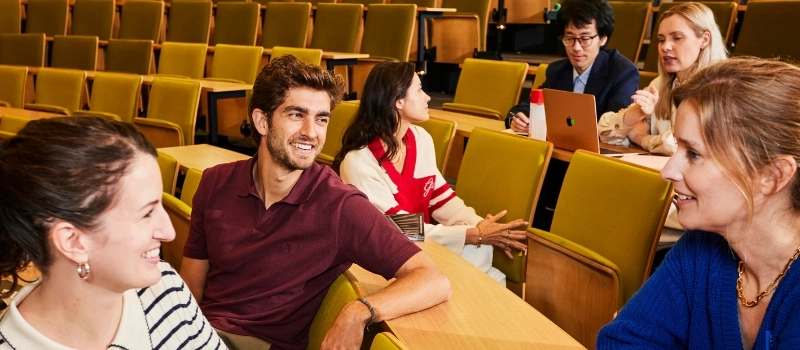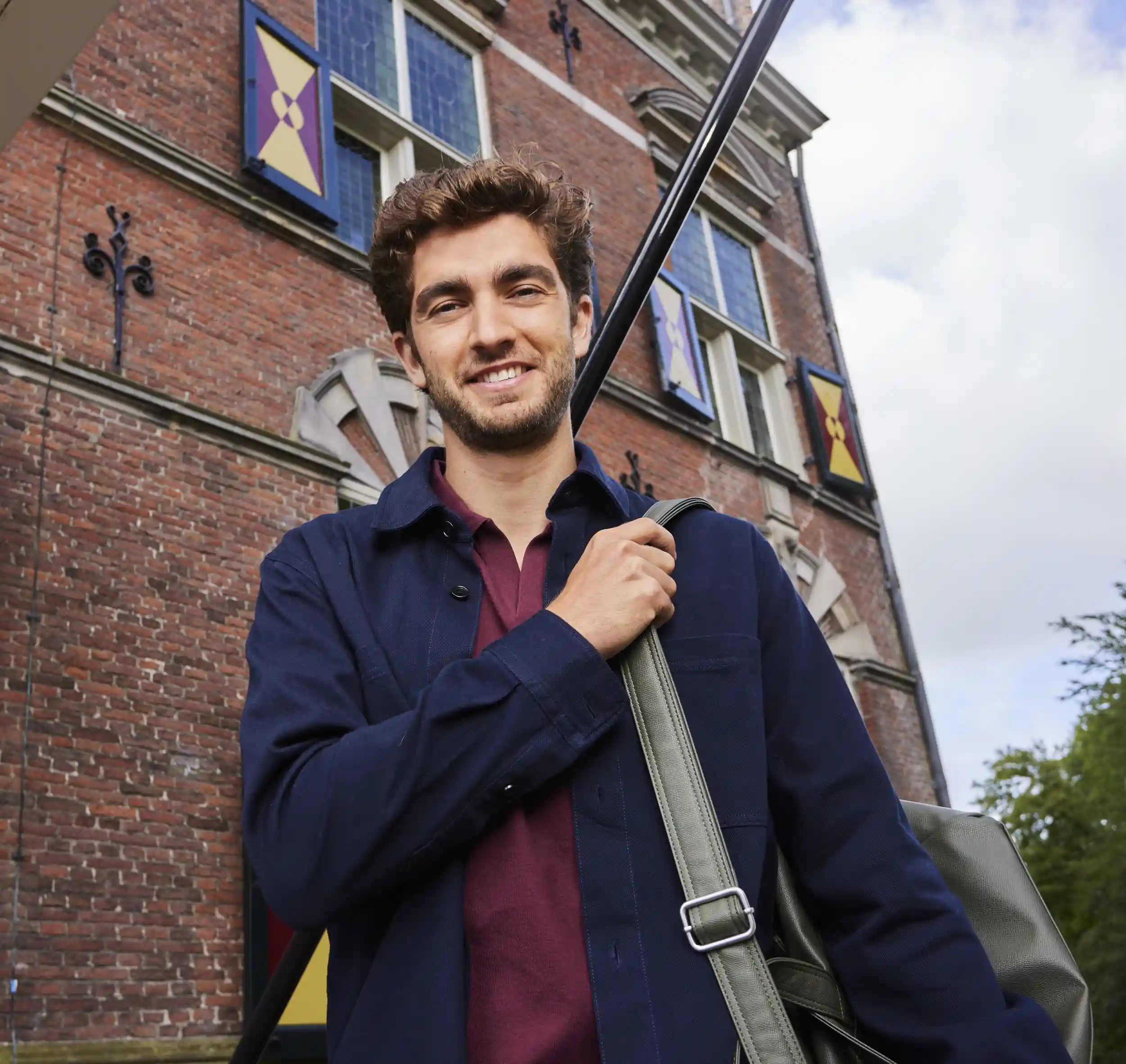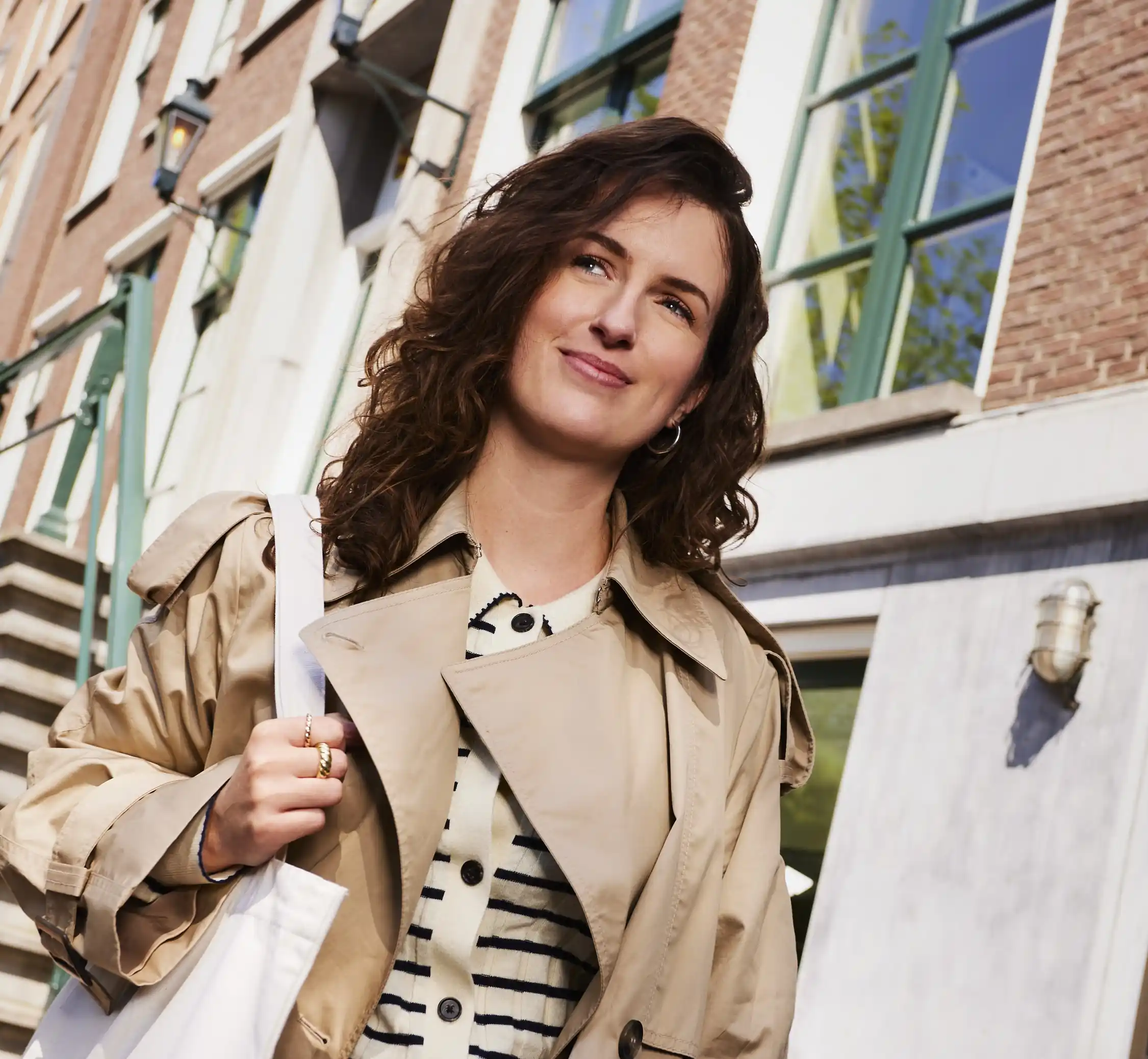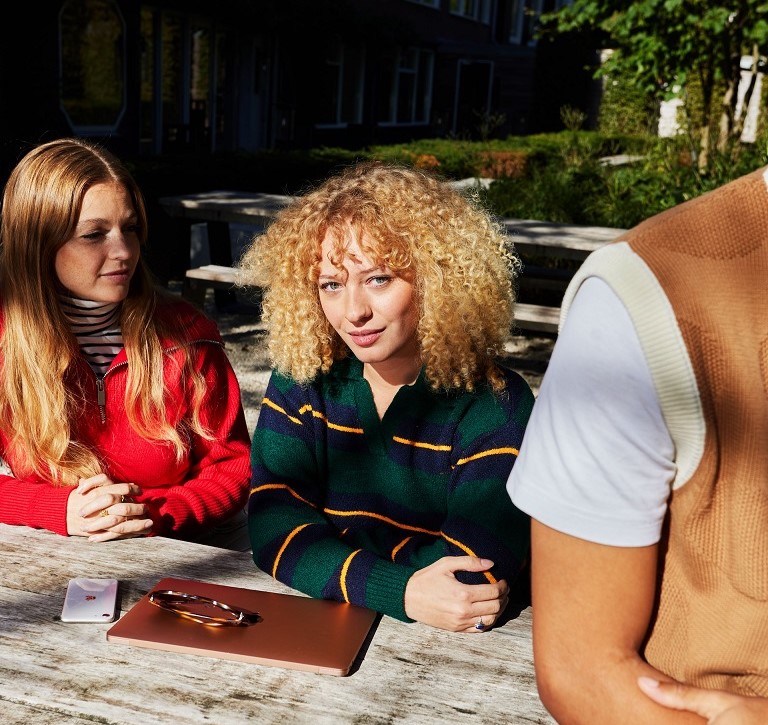On April 20th, 2021, the second Nyenrode Breakfast Session of the academic year 2020-2021 took place online. The session was organized and run by Nyenrode students on behalf of the JCV student association. Keynote speaker Marieke Vrins introduced the participants to her work for several NGO’s on the Greek Island Lesvos, where many refugees reside in search of safety and a better future. Despite the complicated environment, Vrins aimed and succeeded to collect inspiration and advice by offering the participants a business case on enhancing the cooperation between the many NGO’s to improve efficiency.
Carlijn Wentzel, director of Nyenrode Amsterdam, kicked off the session by introducing Vrins as an example in Social Responsible and Personal Leadership, by showing how your actions as a leader can affect the world around you. Since 2017, Vrins has worked for different NGO’s on Lesvos, like Starfish Foundation and Movement on the ground. She is now focusing on implementing and teaching ESD – which stands for Empowerment Self-Defense – on behalf of ESD Global. This way, she is helping the girls and women in the camps, by increasing awareness about violence and training them in verbal and physical self-defense to prevent violence.Complex environment
Vrins studied Orthopedagogy with a master in Forensic Family Sciences and bachelor in Middle Eastern Studies. About Lesvos, she states that the situation is very complex. The Island has a population of 150.000, with more than 500.000 refugees passing the island only in 2015.“The complex environment leads to difficulties in working together efficiently.”2020 has been an eventful year, with a large strike from the local community due to the lack of (sufficient) help from the EU and the Greek government. There was also protest from the refugees due to inhumane conditions, with 23.000 people living in a camp that was made for a few thousand residents. The well-known fire in camp Moria and of course COVID-19 made things even worse. All this, combined with differing local, national and European political policies and many volunteers and refugees coming and going, makes for a complex and ever-changing environment. Which in turn leads to difficulties in working together efficiently, to be able to keep providing the necessary help.
Increasing and strengthening cooperation
There are 78 different NGO’s on Lesvos at the moment. Vrins prepared a case focusing on of the main challenges with this large number of organizations: How can we increase/strengthen the cooperation between NGO’s to improve the efficiency? The participants started off by asking if the United Nations are already involved. Vrins stated they are, but they are not monitoring, stimulating, or increasing the collaboration between NGO’s. Five groups then discussed possible solutions to structure and connect NGO’s.Independent teams and project management
The main solution presented by the groups, which resonated good with Vrins, is to form teams of independent people around subjects like education, health, or housing. According to Vrins the ‘independent’ part is actually crucial, since the NGO-world is sometimes competitive because every organization has slightly different goals and wants to be relevant.“Involving independent actors is crucial to overcome competitiveness.”Another solution brought forward by the groups is to appoint Project Managers who will assess new projects and look for the best fit within the existing NGO’s. Ideas for new projects will be fed bottom-up by engaging representatives from the various refugee communities and distributed to the NGO’s from a central perspective. Vrins responded positively by adding that this will also tackle a portion of the competitiveness. The participants added that by using a central software system for projectmanagement, it will be possible to work more efficiently and get a grip on the knowledge that is already available.
Involving business schools and consultancy organizations
Another group advised to involve business schools and consultancy organizations. This way, NGO’s can learn from their knowledge on organizational structures and experience in how to manage projects in complex, dynamic environments. The organizations and institutions can also link NGO’s and their projects to corporate social responsibility programs. Vrins agreed that bringing in this type of knowledge is very valuable, since NGO’s mainly focus on helping and implementing the projects quickly while being less informed on the management part. She concluded the Breakfast Session by thanking all participants and inviting them to contact her any time with more valuable ideas and interesting contacts.Header photo credit: AFP
Online Breakfast Sessions
Four times per academic year Nyenrode Amsterdam organizes inspiring Breakfast Sessions together with student association JCV. For participating companies, these sessions provide an open platform for them to share their personal story and experience. Furthermore, it offers a unique opportunity for companies to present their business challenge to our (inter)national top students and get advice and ideas in a short time. The feedback received on these recommendations show that the companies who participated are always positively surprised about the outcomes of these short but powerful morning sessions. For more information please send an email to afterwork@nyenrode.nl.
About the JCV
The Jongste Compagnie van Verre (JCV) was founded in 2011. Back then it was led by Bachelor students of the Nyenrode New Business School. In 2019 this changed because Nyenrode Business University started with a Master of Science in Management and a Full-time MBA program in Amsterdam. Ever since the association is led by a combination of Bachelor, Master and MBA students. The JCV offers a platform for students of different social and educational backgrounds to connect and built relationship that will last a lifetime. For more information about the JCV visit: https://jcvamsterdam.nl
Tags
Related programs
-
Bachelor in Business Administration (BSc)
Start date: Mid-August 2025Language:- English
Location:- Amsterdam
- Breukelen
Three-year full-time academic bachelor's in Amsterdam or Breukelen, including leadership development, international exchange and company projects. You can choose the location that fits you.
View program
-
Impact MBA
Start date: March and September 2025Language:- English
Location:- Amsterdam
- Breukelen
- Online
With Impact MBA you become a leader fit for a sustainable and technological future.
View program
-
Impact MBA Executive Track | parttime
Start date: MarchLanguage:- English
Location:- Amsterdam
- Breukelen
- Online
A part-time boost for your personal leadership development.
View program
-
Impact MBA Fast Track | fulltime
Start date: SeptemberLanguage:- English
Location:- Amsterdam
- Breukelen
- Online
A fulltime accelerator for your career in the Netherlands and abroad.
View program
-
Master in Management (MSc) | Full-time
Start date: August 2025Language:- English
Location:- Amsterdam
- Breukelen
The Master of Science in Management at Nyenrode is a 16-month full-time program designed to develop academic and professional skills. With a strong focus on practical business knowledge, Nyenrode prepares students for global careers while fostering personal growth.
View program

